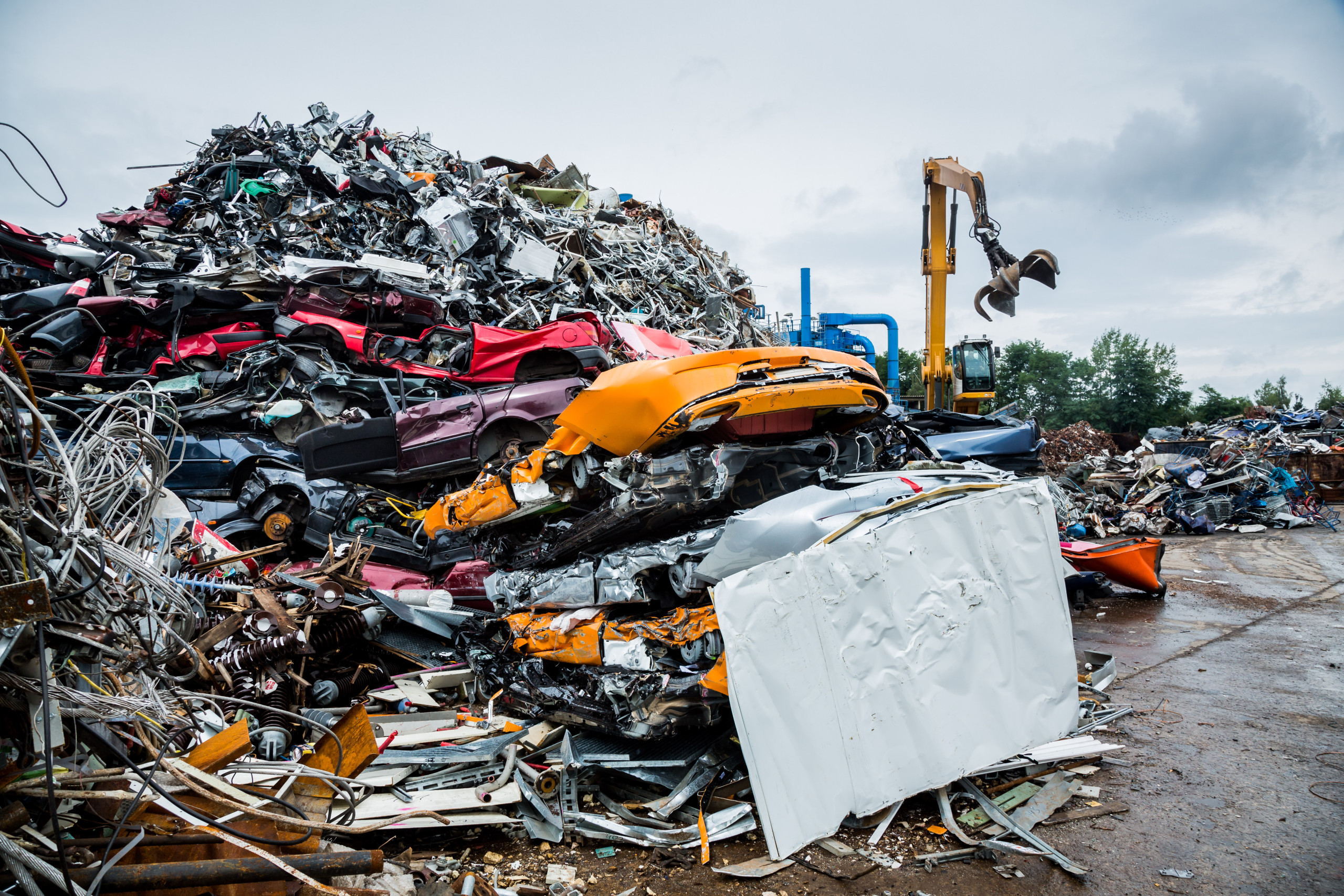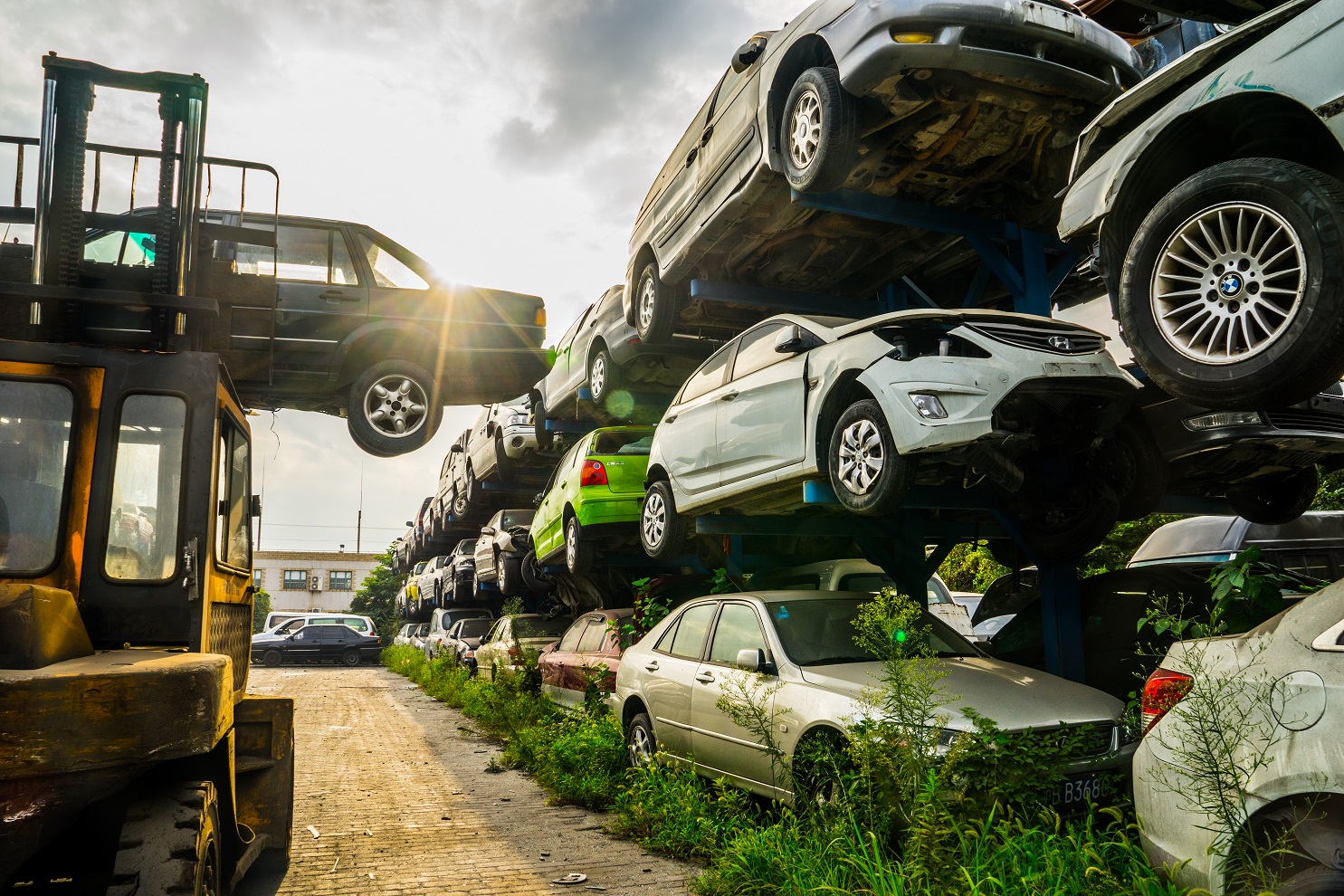End-of-life vehicles largely consist of recyclable materials, from tyres and batteries to the dashboard and the chassis. However, they also contain a range of hazardous substances. This makes recycling end-of-life vehicles a highly complex and involved process. You can rely here on the professional experience and specialist recycling knowledge of our experts.
Professional recycling solutions
Recovering high-quality spares and resources from end-of-life vehicles
Germany’s End-of-life Vehicle Ordinance requires manufacturers and importers to take back end-of-life vehicles. Old, defective, unroadworthy and accident-damaged vehicles are therefore brought to collection points. From there, they go to our facilities for dismantling and recycling.

Our mechanised vehicle recycling systems (VRS) perform the complicated task of removing parts that are still serviceable and marketable, such as doors, trim and also the entire engine and transmission. In this way, we can quickly and efficiently remove the materials for recycling in large volumes while safeguarding quality. At all times, we take great care to ensure that any liquids remaining in a vehicle that represent a health or environment hazard, such as mercury, coolant and fuel, are properly removed and disposed of.
Once all other materials have been removed, the remaining shell is reduced to fist-sized lumps of metal in a modern industrial shredder. The metal is then sent for recycling.
With our professional expertise and state-of-the-art technology, we are able to guarantee reliable processing of end-of-life vehicles, from collection and appraisal to dismantling and recycling.
This same focus on the sustainable remanufacture and recycling of automotive spares based on the circular economy model is also shared by Encory, our joint venture with the BMW Group (Link: https://www.alba.info/geschaeftsfelder/wiederaufbereitung/kfz-ersatzteile).
A January 2018 study on end-of-life vehicle recycling by Prognos AG and Institute for the Future of Industrial Society (INZIN) found that even in 2030, just 20 percent of the roughly three million end-of-life vehicles in Germany will be properly recycled. The remainder will be exported. Those exports and the trend towards lightweight construction in the automotive industry will mean that out of 5.2 million tonnes of resources contained in end-of-live vehicles in 2030, just 1.1 million tonnes will be properly recovered in Germany. The outcome is a loss of resources for the German recycling industry and the economic cost of replacing those resources.
A future central organising body is proposed to support, study and perform research with regard to end-of-life vehicle recycling in order to achieve a higher recycling rate in Germany. The primary focus here is on self-administration by the industry, which will benefit from automotive manufacturers, recyclers and shredders working together based on self-financing from new vehicle sales. How this body will go about its work is currently under discussion, but various advantages are already foreseeable:
- Reduction of state administrative effort in deregistration
- Involvement of the automotive industry in the spirit of producer responsibility
- Involvement of recyclers
- Finances managed in the industry’s interests
- No additional red tape


